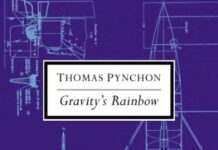
Ebook Info
- Published: 2012
- Number of pages: 786 pages
- Format: EPUB
- File Size: 0.98 MB
- Authors: Thomas Pynchon
Description
A Time magazine and New York Times Best Book of the Year Charles Mason (1728–1786) and Jeremiah Dixon (1733–1779) were the British surveyors best remembered for running the boundary between Pennsylvania and Maryland that we know today as the Mason-Dixon Line. Here is their story as reimagined by Thomas Pynchon, featuring Native Americans and frontier folk, ripped bodices, naval warfare, conspiracies erotic and political, major caffeine abuse. Unreflectively entangled in crimes of demarcation, Mason and Dixon take us along on a grand tour of the Enlightenment’s dark hemisphere, from their first journey together to the Cape of Good Hope, to pre-Revolutionary America and back to England, into the shadowy yet redemptive turns of their later lives, through incongruities in conscience, parallaxes of personality, tales of questionable altitude told and intimated by voices clamoring not to be lost.Along the way they encounter a plentiful cast of characters, including Benjamin Franklin, George Washington, and Samuel Johnson, as well as a Chinese feng shui master, a Swedish irredentist, a talking dog, and a robot duck. The quarrelsome, daring, mismatched pair—Mason as melancholy and Gothic as Dixon is cheerful and pre-Romantic—pursues a linear narrative of irregular lives, observing, and managing to participate in the many occasions of madness presented them by the Age of Reason.
User’s Reviews
Reviews from Amazon users which were colected at the time this book was published on the website:
⭐I just finished reading this book and think it’s extraordinary. There is a New York Times review that includes the phrase”…the author shows a magical ability to dwell effortlessly in the past…”This statement, to me, perfectly sums up the overall effect of the novel.As with any Pynchon novel, there are a lot of details – technical, historical, manners of speech, etc. Additionally, the author must stick to the main story, so the digressions are not as severe as I’ve seen before, or at least they are not so profuse as to prevent the reader from making it back to the main story (I believe it’s the Line that forces Pynchon to adhere to some measure of linearity). However, the digressions are one of the things that makes Pynchon such an incredible author. As the quote points out, I am sure that I’ve never had a novel transport me to a place/time quite the way this novel does. Even the prose is reminiscent of 18th century writings (I will admit that I have not come across this type of writing in its exact form when reading old books, so I am making a guess that Pynchon created this type of writing, albeit with a heavy influence from 18th century literature).As far as the lingo in this book goes, I won’t try to pretend like I understood every word, every reference or even every detail. But the writing is rich enough to allow me to understand almost every scene in the book. I’m sure there are a lot of small pieces, here and there, that I didn’t get. It’s a complex masterpiece that can probably only be fully understood in a college class devoted to just this one book. It should be stated that, after every chunk of the book I read, I went on the internet to look up a bevy of strange words, unknown places and people, and events. As a history lesson, I’ve never read a book that has given me more information, or demanded from me more study. I learned a great deal of history that is not found in school textbooks.A brief synopsis of the novel…The first portion of the book deals with the transit of Venus, where Mason and Dixon take down the times when Venus starts to move into the path of the sun (the ingress) and then exits (the egress). The scene takes place mostly in Cape Town, South Africa. Besides the actual measurements of the transit, we are treated to a story that describes Mason and Dixon’s time there, the people of the Cape, slavery and details of that area – as well as the beliefs and ways of thought of both Mason and Dixon. It’s here that we get a general overview of how the two men are – Mason a melancholic and Dixon a more enjoyable and lighthearted person. Dixon’s overall way about himself somehow allows him to connect more readily with the native which inhabit the region, and this also works for him later in the novel when dealing with the Indians in America. We find that Mason, the astronomer, takes some offense when he is referred to as a surveyor (Dixon was a surveyor), but Dixon takes it in stride – maybe at the expense of Mason (like when Dixon is referred to as an astronomer by some folks who consider the two to be the same). Further explored are the feelings that Mason has about his eventual boss Maskelyne. This section takes about 1/5 of the book.Next, the surveyors (well, one was a surveyor) are off to America. This portion of the book probably takes up about 7/10 of the book. Besides the actual construction of the line, a lot of period detail is given. There are an incredible number of side stories here, as well as some interesting embellishments (these I ascribe to the narrator who allows for some Paul Bunyon-like tall tales – but I will admit that there may be purposes in these stories that I don’t fully comprehend – and the narrator does mention that history can be fabricated to an extent). For instance, you’ll learn about a golem, a robotic duck that poops (the duck was true, but what it does in this novel is embellished), giant vegetables grown by who knows, and a variety of other assorted astonishments. Additionally, Pynchon points out the brutality of America – the slavery, the Indian massacres (and a sad story of a school house massacred by Indians, and another sad story where Indians suffer massacre but with the added humiliation of having no one understand their last words). The Line, as it says, separates evil from good – except for Philadelphia. The Line also has a certain fuzziness in that it does not separate perfectly and indeed, some have moved certain markers for their own use. In all, though, I’m guessing that the Line itself represents a version of Pynchon’s idea of entropy – that which grows as time goes by – and even considers going West as into the future, with East the past.The level of complications during the American time are many – political, social, scientific, religious, world views, and more. The discussions between Mason and Dixon are many, and they highlight what each man’s views of the real world are about, as well as their own religious and political views. Their differences show the dualism that Pynchon loves so much – these characters are not entirely different, but they are definitely different enough to have radically different ways of viewing the world, religion and politics. Mason and Dixon don’t always disagree and, as the novel goes on, the characters start to feel affection, as true friends, for each other.I would say that Mason is a deeper thinker, though not necessarily smarter, than Dixon. Mason’s growing-up years are sadder than Dixon’s, and I think that points to how they behaved as adults. Dixon seems more pragmatic than Mason, and he has a better sense of humor. Mason seems to blame himself for a lot of things, or at least feel saddened, at both his wife’s death and his relationship with his father.The last portion of the book deals with Mason and Dixon’s time after America. There is another Venus transit, but the details are not as great as the first transit (Mason’s heart is not into this transit and Dixon doesn’t seem to have a lot invested either – but Dixon does get a job with the Royal Society from his time with Mason). I’d say that this part of the book more appropriately deals with how Mason and Dixon come to see each other, and cements their friendship.The end of the book works pretty much as I had thought – I’ll reveal nothing here except to say that in the past few days my feeling for the book tended towards “this book is about their friendship”, and I was right about that. Heavy meaning is everywhere in the book, and the details provided have no peer in any other author working today, but still, the whole story boils down to a pretty simple idea of friendship.In the end, I will say that I actually felt sad as I read the last page. I spent 2 months reading this book, and I hated the idea of being done with it. I lived with these characters and I came to know them – like no other book I’ve read before.It’s been a long time since I’ve read “Gravity’s Rainbow”, but nonetheless, I’d have to say that I took away more about these characters, and really liked them, than I can remember in “Gravity’s Rainbow”. Not to sound heretical or anything like that, but I think this is Pynchon’s best work as an author.As I told my girlfriend this evening, now I have to go back to reading “ordinary” books (although I still have “Against the Day” and “V” to read). This level of writing is just not found in books that you read nowadays. It’s a difficult book, but the prose is wonderful, and if you do some outside reading, you’ll learn a lot.It’s an impossible task for me to completely describe this book, but try I have. I would not recommend it as an introduction to someone reading Pynchon (I’d say to read “Vineland” or “Inherent Vice” for that), unless that person has read some challenging books in the past. If you are a Pynchon fan, then this book is waiting for you – it’s great, complicated, and has more than you’d expect from even Mr. Pynchon.
⭐The book is long (34 hours in the audiobook at normal speed) and 773 pages in the paperback. (I read this in audio and ebook format, so my quotes have location numbers rather than page numbers.) So, summarizing the plot seems inadvisable. And yet… Pynchon does just that in the book. Toward the end of the novel, he imagines the story retold as a stage production. And, so, I begin my review with a brief summary of the story in the author’s own words:Dixon is dreaming of a Publick performance as well, except it’s he and Mason who are up on the stage, and whoever may be watching are kept invisible by the Lights that separate Stage and Pit. They are both wearing cheap but serviceable suits, and back’d by a chamber orchestra, they are singing, and doing a few simple time-steps, –It … was … fun,While it lasted,And it lasted,Quite a while, –[Dixon} For the bleary-eyed lad from the coal pits,[Mason] And the ‘Gazer with big-city Style, –[Both] We came, we peep’d, we shouted with surprize,Tho’ haf the time we coudn’t tell the falsehoods from the lies,[M] I say! Is that a –[D] No, it ain’t.[M] I do apologize, –[Both] The Astronomer’s Life, Sya,Pure as a Fife , hey,Quick as a knife, inThe Da-a-ark![M] Oh, we went, –Out to Cape Town,[D] Phila-Del-phia too,[Both] Tho’ we didn’t quite get to Ohi-o,There were marvels a-plenty to view…Those trees! Those hills! Those vegetables so high!The Cataracts and Caverns,And the Spectres in the sky,[M I say, was that –[D] I hope not![M] Who the Deuce said that?[D] Not I!It’s a wonderful place, ho,Nothing but space, goOff on a chase in the Dark…”(location 11523)If you want a more straightforward summary of the book and its big theme, allow me to quote Michiko Kakutani from the New York Times:In “Mason & Dixon,” [Pynchon’s] long-awaited new novel — and the most emotional and affecting work in his oeuvre to date — Pynchon offers a variation on this favorite theme. This time, the overarching tension is between Enlightenment rationalism and absurdist despair; between the orderly processes of science and the inexplicable marvels of nature, between our modern faith in progress and the violent, primeval realities of history.While accurate, Kakutani does not properly emphasize the humorous use of language contained in Mason & Dixon. The jokes, once you find them, are the reason to keep reading this 700 plus page tome. One of the joys of the book, at least for me — this book is clearly not for every reader, is the language. Pynchon uses some words in unusual ways. In particular, the words Iliad and subjunctive. These are, as far as I know, not words one usually thinks of as humorous words in the same way that David Letterman thought that the phrase worldwide pants was uproarious, largely, because he just thought the word pants sounded funny.Iliad, of course, refers to the Homeric epic of the story of Troy. The story of Achilles and Agamemnon and Hector, of pride, of rage (Menin in Greek) and of battles. Here are some examples of how Pynchon uses the word:Mason surmises some long and probably tangled Iliad of Woe back among the Friths and Fells (location 6819)During a long Iliad of hard soldiering and small, mortal, never-decisive engagements amid dramatic hilltops, haunted castles, mysterious flocks of bats that alwasys seem’d to be lingering about… (location 9048)Consider also Pynchon’s use of the word subjunctive. Now, the subjunctive is a mood of verbs that is used to express uncertainty, what is imagined, wished for, or possible. For example, in English, while there is no subjunctive mood per se, one could think of this sentence as a subjunctive:If I hadn’t eaten dinner at that restaurant yesterday. then I would have had more money today.The subjunctive is usually contrasted with indicative or what, in English, might be called a declarative sentence such as the following:I had dinner at a restaurant yesterday.Consider Pynchon’s use of the word subjunctive to refer not to the mood of a verb, but, instead, to refer to possibility, or desire as a concept.:All subjunctive, of course, –had young Mason gone to his father, this might have been the conversation likely to result. (location 3218),,,–serving as Rubbish-tip for subjunctive hopes, for all that may yet be true… (location 5310)Way into the continent, changing all from subjunctive to declarative, reducing Possibilities to Simplicities that serve the ends of governments, — (location 5312)…has she been trouping on, cheerfully rendering subjunctive or contrary to fact, familiar laws of nature and common sense. (location 5610)He is become the central subjunctive fact of a faith, that risks ev’rything upon one bodily Resurrection … Wouldn’t something less doubtable have done? (location 7821)Also worth noting is Pynchon’s new variant of the phrase carpe diem from the Latin. It literally means pluck the day and is usually used to mean something like make the most out of the present moment and do not be too concerned about the future. Pynchon changes the term:The Romans ‘round here used to say ‘Carpe Carpum,’ that is, ‘seize the carp.’There is no doubt that the length of the book and the fact that it is a historical novel (with a fair amount of science math and enlightenment theology thrown in as well) that simultaneously tries to immerse one in the time period mean that time and effort will be required to finish it. However, to the right reader Mason & Dixon is also an adventure story filled with anachronistic humor. Unlike Gravity’s Rainbow, the humor is not surrounded by pornographic violence. So, if you tried and failed to finish Pynchon’s first big novel, I suggest you are more likely to finish and enjoy Mason & Dixon.
⭐The actor who took this on has a voice equal to the challenge of embodying that of the Rev Wicks Cherrycoke. Nevertheless, M&D is a furiously revolving wheel of stories which can only outpace a well-meaning narrator, leaving its ineluctable moments to be better enjoyed by the truly solitary person reading the book quietly in an armchair.
⭐This meticulously researched and crafted epic is a unique mix of serious historical novel, “bromance”, and a series of surreal Pythonesque sketches involving a talking dog, a mechanical duck and giant vegetables. It is full of laugh-out-loud moments, sweeping historical set-pieces and touching human interest. But it is a difficult read. Written in idiomatic 18th century style (the prose as well as the dialogue), full of verbose asides and often branching out into post-modernism and magical realism it can be very difficult to follow at times. The experience is similar to reading a difficult book in a foreign language which you speak well without being completely fluent. Here is some sample prose to illustrate what I mean…’In the Hold were hundreds of Lamb carcasses,- once a sure occasion for Resentment prolong’d, now accepted as part of a Day inflicted by Fate, ever darkening,- exil’d to which, he must, in ways unnam’d,-perhaps, this late, unable to include “simply,”-persist.’In short I’m very glad I read it and I’m very glad I’ve finished it.
⭐Mason & Dixon is a novel of consummate brilliance on many levels, but especially language; it is simply one of the great masterpieces of English prose. Ever.Like this:”Does Britannia, when she sleeps, dream? Is America her dream?—in which all that cannot pass in the metropolitan Wakefulness is allow’d Expression away in the restless Slumber of these Provinces and on West-ward, wherever ’tis not yet mapped, nor written down, nor ever, by the majority of Mankind, seen,—serving as a very Rubbish-Tip for subjunctive Hopes, for all that may yet be true,—Earthly Paradise, Fountain of Youth, Realms of Prester John, Christ’s Kingdom, ever behind the sunset, safe till the next Territory to the West be seen and recorded, measur’d and tied in, back into the Net-Work of Points already known, that slowly triangulates its Way into the Continent, changing all from subjunctive to declarative, reducing Possibilities to Simplicities that serve the ends of Governments,—winning away from the realm of the Sacred, its Borderlands one by one, and assuming them unto the bare mortal World that is our home and our Despair.” “Some mornings they awake and can believe that they traverse an Eden, unbearably fair in the Dawn, squandering all its Beauty, day after day unseen, bearing them fruits, presenting them Game, bringing them a fugitive moment of Peace,- how, for days at a time, can they not, dizzy with it, believe themselves pass’d permanently into Dream…?” “There is a fragility about Dixon now, a softer way of reflecting light, such that Mason must accordingly grow gentle with him. No child has yet summon’d from him such care.”As you can see, this is nearer poetry than prose, and it seems almost preternatural that anyone could write at this level for 773 pages, but Thomas Pynchon does.If you revere, in Pynchon’s own words, ” …this English idiom we are blessed to have inherited…” I think you’ll treasure Mason & Dixon .
⭐One of Pynchon’s most accessible novels (once you get used to the brilliant pastiche of 18th century novel style and diction). Just as his protagonists are contracted to draw a straight line across the wilderness, Pynchon draws a random line across our rational delusions. If that sounds a bit pretentious, don’t worry, the novel is just a great big shaggy dog story of random encounters and hilarious conversations. Forget about any plot development or meaning, just enjoy each chapter, each encounter, for itself. Read best in small bits, the ideal bedside book.
⭐Bought as a hardback some years ago, Deteriorating eye sight and move to decluttering led me to move to Kindle edition. A difficult but rewarding read.
⭐Difficult in its dense period English vocabulary and syntax, Mason and Dixon proves in the end to be worth the effort and achieve what Pynchon wanted – a wonderfully well told story of the lives of two men from different worlds thrown together into a challenge in a challenging new country.
Keywords
Free Download Mason & Dixon in EPUB format
Mason & Dixon EPUB Free Download
Download Mason & Dixon 2012 EPUB Free
Mason & Dixon 2012 EPUB Free Download
Download Mason & Dixon EPUB
Free Download Ebook Mason & Dixon



